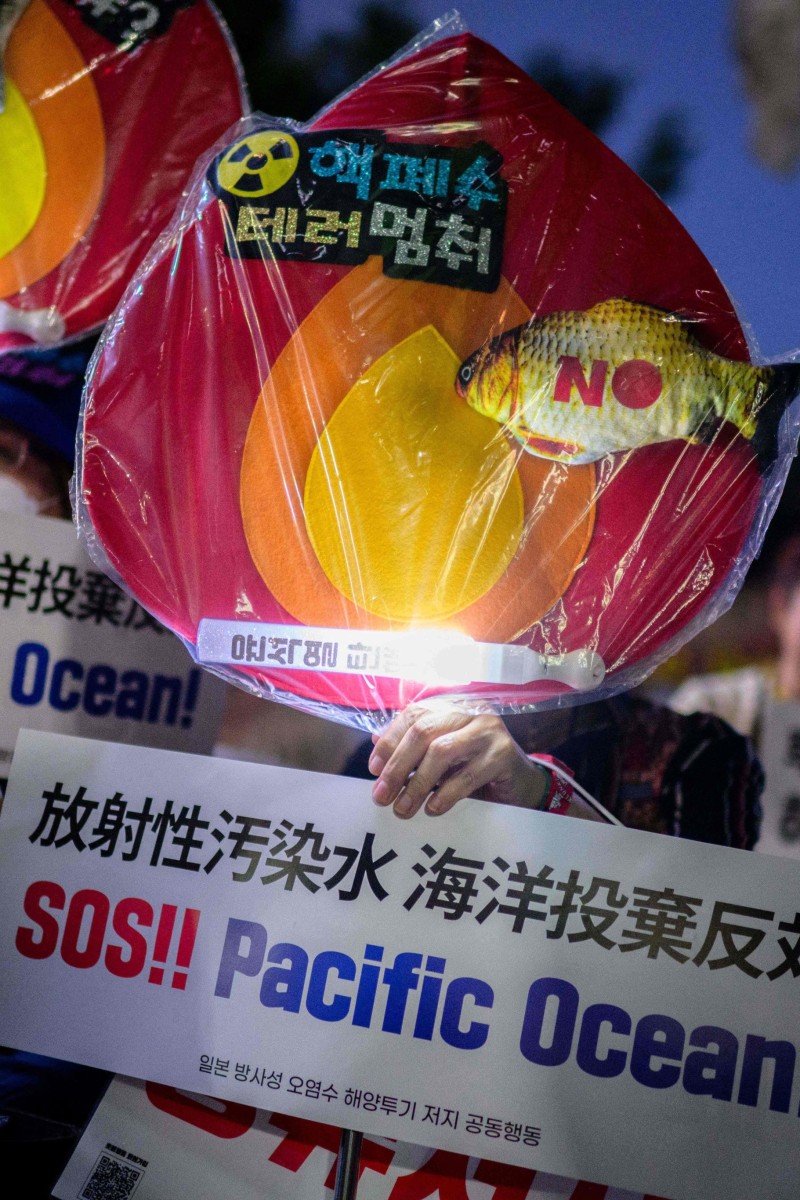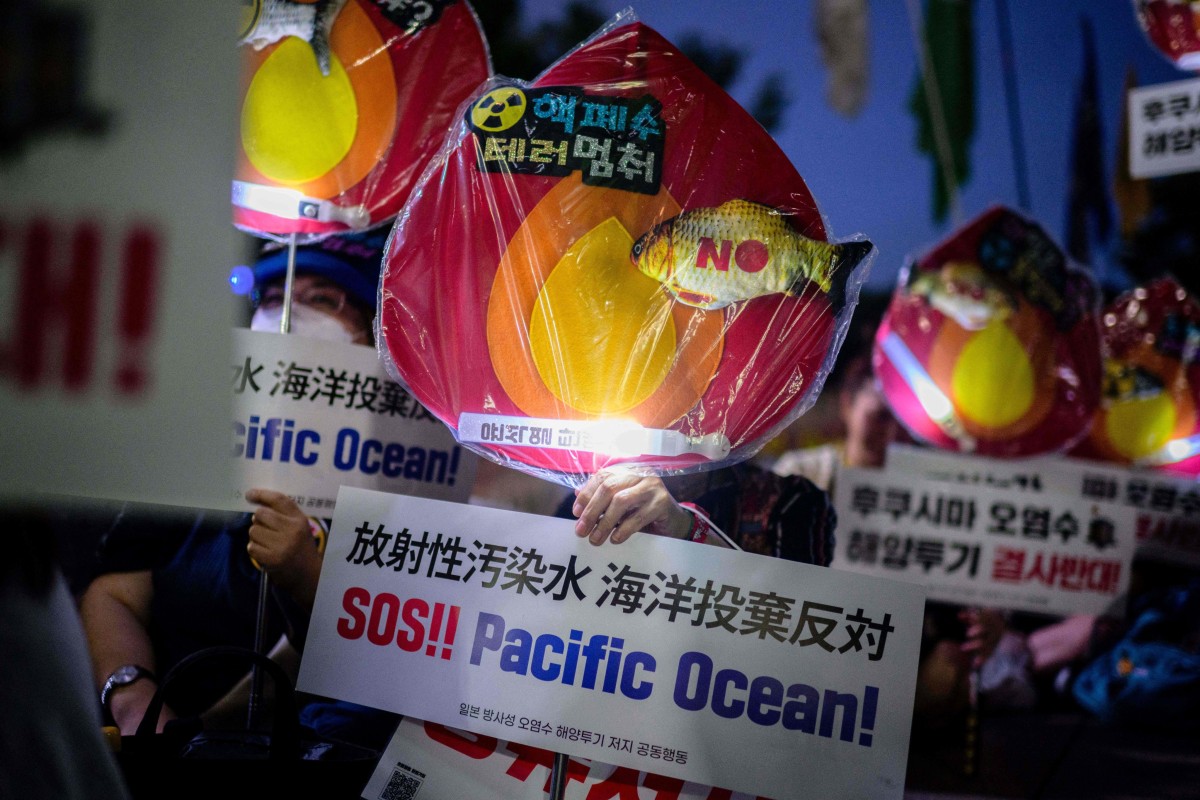
The Lens: Japan’s Fukushima waste water release raises concerns; World Cup kiss starts debate on gender equality in sports
- Experts say releasing the contaminated water into the Pacific Ocean is safe, as it goes through an intensive dilution process, but some radioactive elements remain
- Spain is divided after football president Luis Rubiales kissed player Jenni Hermoso, with some calling for his resignation
 An activist holds a sign that reads “SOS!! Pacific Ocean!” during a protest outside City Hall in Seoul, South Korea on August 22, 2023 against the planned release of waste water from Japan’s Fukushima nuclear plant into the ocean. Photo: AFP
An activist holds a sign that reads “SOS!! Pacific Ocean!” during a protest outside City Hall in Seoul, South Korea on August 22, 2023 against the planned release of waste water from Japan’s Fukushima nuclear plant into the ocean. Photo: AFPHave some thoughts on this issue? Send us your response (no more than 300 words) by filling out this form or emailing yp@scmp.com by September 6 at 11.59pm. We’ll publish the best response next week.
Thoughts from last week
Grace Lam, Diocesan Girls’ School
In 2011, an earthquake triggered a tsunami in Japan, which swept over the defences of the Fukushima nuclear power plant and caused a massive radiation leak.
Last week, Japan started releasing treated radioactive water from this area into the Pacific Ocean. They were running out of space to store the contaminated water, and there were no options other than releasing it into the ocean.
The government made a plan: first, they would dilute the water with seawater to lower tritium levels, then the diluted water would go through a tunnel under the sea floor to dilute it further. The water would not be released all at once, but slowly, over a span of decades.
The Tokyo Electric Power Company said that seawater samples taken on Thursday showed all radioactivity levels were within safe limits. Still, the filtering process isn’t perfect and can only remove 60 radioactive substances; the water released into the ocean will not be entirely free of radiation and will still contain a radioactive element of hydrogen called tritium.
Many experts say the released water does not pose a danger and contains very low levels of radiation, but I worry it could still be harmful. But there’s no firm “yes” or “no” answer to the question of releasing the treated radioactive water. On one hand, it could harm local fishermen and neighbouring countries, but on the other hand, Japan does not have another choice.
The move has prompted many protests from people concerned about the potential health effects of the water release, and I think people should be allowed to express their opinions as long as they remain peaceful.
Observe and read
Spanish regional soccer chiefs have demanded Luis Rubiales, president of the Royal Spanish Football Federation, resign for grabbing and kissing World Cup winner Jenni Hermoso as the Spanish government promised to ensure women play a bigger role in running sports in the nation.
Prosecutors have opened a preliminary investigation into whether Rubiales might have committed an act of sexual aggression when he grabbed Hermoso and kissed her on the lips after Spain’s victory in the Women’s World Cup in Sydney on August 20.
The incident has divided Spain into supporters of Rubiales, who says the kiss was innocent and consensual, and those who say the incident signalled a need to end Spain’s macho behaviour and casual sexual abuse.
Protesters gathered in Madrid last month to demand Rubiales’ resignation, with some holding signs saying “It’s over,” which has become the social media slogan for the movement.
Federation representatives also asked Rubiales to resign, but stopped short of calling a motion of no confidence. It noted a need to restructure leadership “to allow for a new phase of management in Spanish football” that included more gender equality.
Acting Sports Minister Miquel Iceta welcomed the plan, adding that a new sporting law would enforce gender parity and require women to hold leadership roles in at least 40 per cent of all the nation’s sports organisations.
The sports law was approved in December 2022 and will be fully enforced in January 2024.
Sue Ng and Reuters
Research and discuss
-
Can you recognise the country in the picture? Why the people are protesting?
-
Why is gender equality important in sports and how can it be achieved?